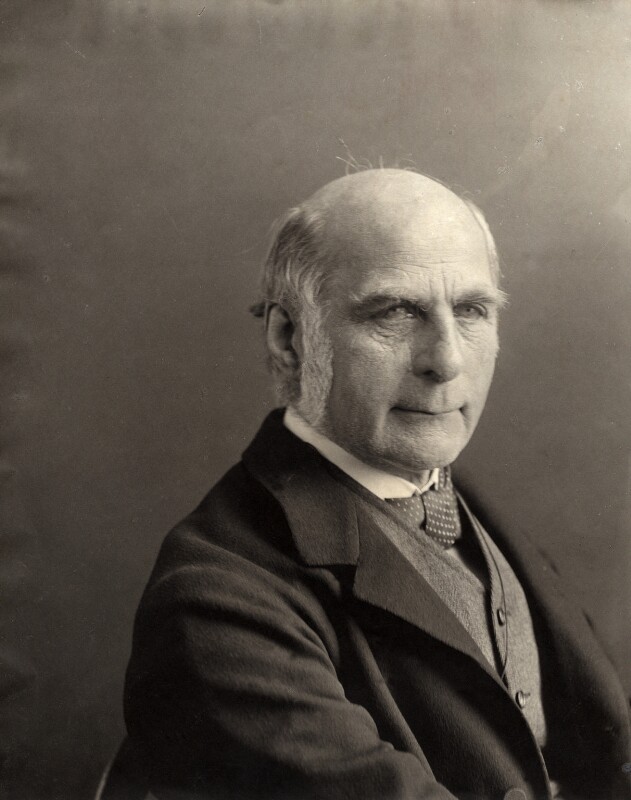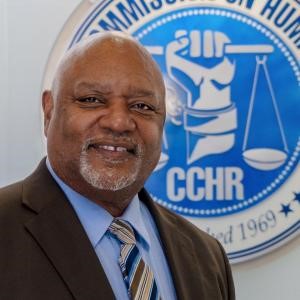Equitable treatment for African Americans after the war was thwarted by the racist theories actively promoted by psychiatrists and psychologists.
At the end of the Civil War, the institution of slavery had been abolished, and during the Reconstruction era from 1863-1877, the U.S. government took on the task of ensuring equitable opportunities and treatment for Black Americans. And yet systemic racism persisted. The reason why may be found in the embrace of eugenics by the psychiatrists and psychologists of the American mental health movement in the decades immediately following the war.
Before their adoption of eugenics, psychiatrists and psychologists for generations had been prime instigators of “scientific racism,” using pseudoscience to invent “racial diseases,” promote theories to “justify” segregation and racial population control, and subject Blacks to depraved “treatments.”

The Father of American Psychiatry, Dr. Benjamin Rush, himself a slave owner, claimed in the late 1700s that Blacks suffered from a form of leprosy called “negritude” and needed to be segregated to prevent them from infecting others.
Just before the Civil War, psychologist Samuel A. Cartwright “discovered” a mental illness among Blacks that he called “drapetomania,” from the Greek words drapetes, a runaway slave, and mania, meaning crazy, which he claimed caused slaves to have an “uncontrollable urge” to escape from their masters. The “treatment” was “whipping the devil out of them.”
These “racial diseases” provided justifications for treating Blacks as inferior and dangerous to society in the U.S. Then this “scientific racism” got a big boost from the pseudoscience of eugenics.
In 1883, English psychologist Francis Galton coined the term “eugenics,” meaning “good stock,” to put a scientific spin on his theory, published as early as 1869, that more suitable “strains of blood” were found in families with high levels of social and professional accomplishment.
Galton believed that certain races were “less suitable” and considered Africans inferior, writing, “these savages court [ask for] slavery.”

The ideas of eugenics and “racial purification” spread globally and were used to justify many human rights abuses and atrocities, including the Nazi’s extermination of “inferior races,” South Africa’s apartheid, and the Ku Klux Klan’s crimes and terrorism against Blacks in the U.S.
Psychiatrists and psychologists in the American mental health movement adopted and promoted eugenics, spreading the racist idea of Black inferiority. In every decade from 1900-1970, there was at least one prominent American psychologist promoting the theory of the genetic inferiority of African Americans, and many of these racist psychologists became presidents of the American Psychological Association.
In the past year, both the American Psychiatric Association and the American Psychological Association issued public apologies for this prime role in instigating and perpetuating systemic racism in the U.S.
Their admissions follow the 2010 apology by the president of the German Psychiatric Association for psychiatrists’ lead role in using eugenics ideology to organize and administer the “racial cleansing” genocide during the Nazi regime in Germany, admitting that psychiatrists “forced [their patients] to be sterilized, arranged their deaths, and even performed killings themselves.”
In the late 1800s, the spread of Darwin’s theory of evolution, published in 1859, had popularized phrases such as “survival of the fittest” and “struggle for existence.” Darwin’s cousin, Francis Galton, then applied Darwinian science to create the theory of hereditary “good birth” that he called eugenics.
By the early 1900s, psychologists assumed a central role in the eugenics movement in the U.S. with their use of intelligence testing to identify those with “defective” minds. Henry Herbert H. Goddard, a prominent American psychologist, eugenicist, and segregationist, translated French psychologist Alfred Binet’s intelligence test into English in 1908 to become the Stanford-Binet intelligence quotient (IQ) test. Even at the time, “the test was viewed as culturally flawed as it contained questions about tennis nets, bowling, Broadway stars, operatic masters, and fine cooking,” according to Marilyn M. Singleton, M.D., J.D., writing in the Journal of American Physicians and Surgeons.
The test data was used to draw flawed conclusions about the inferior intelligence of certain races. American eugenicists began claiming that the IQ of Blacks was determined by the amount of “white blood” in them. Interracial marriages were said to lower the IQ of whites. By 1913, laws were being passed to forbid interracial marriage.
Goddard and Albert E. Wiggam, an American psychologist and one of the most influential promoters of eugenic thought, penned widely selling books with eugenics themes and traveled across the country with lantern-slide presentations to promote the ideas of eugenics, including segregation and sterilization, to the public in the early 1900s.
After 1914, courses on eugenics were being offered at America’s leading universities, including Harvard, Columbia, Cornell, and Brown. The racist ideology was taught to generations of prospective classroom teachers by psychologists E. L. Thorndike and Leta Hollingsworth, who taught at Columbia University.
The eugenics movement inspired and fueled the resurgence of the Ku Klux Klan’s white supremacist activities in the U.S in the early 1900s. In 1923, Hiram Wesley Evans, Grand Wizard of the KKK, referenced eugenics leaders in his speech given on “Klan Day.”
Margaret Sanger, who founded Planned Parenthood, was a eugenicist who believed in sterilization. In a book published in 1922, she called for the sterilization of “genetically inferior races” and set up clinics to reduce the population of African Americans in the U.S.
Eugenics became deeply entrenched in American popular culture during the period of the 1910s through the 1930s. The movie, “The Black Stork,” which supported eugenic sterilization, debuted in 1917 and ran in theaters and roadshows well into the 1920s.
State fairs had “fitter family” contests, school biology textbooks taught eugenics, and church sermons promoted eugenic ideas for “healthy” marriages.
An analysis of high school science textbooks published between 1914 and 1948 indicates that a majority presented eugenics as a legitimate science, training generations of students that segregation and sterilization were beneficial to American society.
Psychiatrists and psychologists continued to legitimize racism and the ideas of eugenics throughout the ensuing decades. In the 1950s, psychologist J.C. Carothers published a widely read study with the World Health Organization, stating that “in many ways the African resembles a European 8- or 9-year-old child in his reaction to the environment.”
Also in the 1950s, Stanford University psychologist Lewis Terman used biased IQ testing extensively, then asserted that non-whites could never be educated and that Blacks should never be allowed to have children.
As recently as 1994, Harvard University psychologist Richard Herrnstein co-authored the book, The Bell Curve, in which he claimed that Blacks performed worse on intelligence tests than whites and are “genetically disabled.” In an argument similar to those made by earlier proponents of eugenics and “racial purity,” Herrnstein advocated selective breeding to limit the Black population.

The opportunity for the nation to heal following the Civil War was thwarted by the racist eugenics ideology that was widely promoted and given “scientific” justification by leading psychologists and psychiatrists.
Today, the legacy of eugenics is evident in the institutional racism in the fields of psychiatry and psychology. African Americans are disproportionately diagnosed with mental illness and are more likely to be admitted to psychiatric facilities. They are disproportionately diagnosed as having a psychotic disorder, especially schizophrenia, and they are disproportionately prescribed antipsychotic drugs. Black men, in particular, are more likely to be prescribed excessive doses of these psychiatric drugs.
In the words of the American Psychiatric Association’s (APA) January 2021 apology to Blacks, Indigenous and People of Color (BIPOC): “Since the APA’s inception [in 1844], practitioners have at times subjected persons of African descent and Indigenous people who suffered from mental illness to abusive treatment, experimentation, victimization in the name of ‘scientific evidence,’ along with racialized theories that attempted to confirm their deficit status… These appalling past actions, as well as their harmful effects, are ingrained in the structure of psychiatric practice and continue to harm BIPOC psychological well-being even today.”
The Citizens Commission on Human Rights (CCHR) launched the Task Force Against Psychiatric Racism and Modern-Day Eugenics to investigate and combat institutional racism and inform and empower the African American community with the facts about racism and eugenics masked as mental health care.
